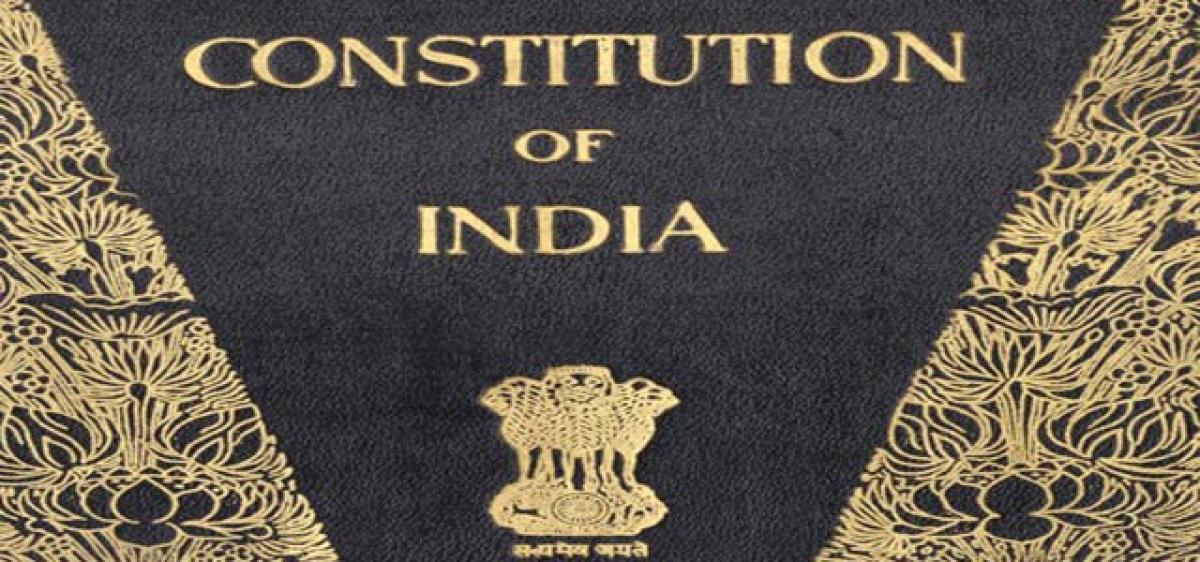Live
- A Guide to Temperature and Humidity Standards in Data Center Server Rooms
- Gadwal collector briefs on details of voters
- Jupally Krishna Rao takes part in Alampur rallu
- Bharath Prasad files 3rd Nomination
- Baisakh Month: A Time of Auspicious Beginnings and Sacred Festivals
- Oust BJD govt for overall development, says Shah
- Unveiling the Hidden Gems: Surprising Health Benefits of Garlic Peels
- Overcoming Sleep Struggles: A Comprehensive Guide to a Restful Night
- RTC bus hit the auto
- MLA Kuchukula Rajesh Reddy participated in the Birappa festival
Just In

Manipur Chief Minister Okram Ibobi has that the provisions of the Sixth schedule of the Constitution, which permits autonomy for hill areas, should not be extended to Manipur.
Manipur Chief Minister Okram Ibobi has that the provisions of the Sixth schedule of the Constitution, which permits autonomy for hill areas, should not be extended to Manipur. "Some officials in Delhi who do not know the ground realities had asked me why it cannot be done since it was extended to the Bodo areas of Assam. The Bodo Territorial Council is a mere dot in Assam's map.
In case of Manipur, which is smaller than any district of Assam, 90 per cent of the territory falls in the hill districts. The non-tribal valley areas constitute just 10 per cent of the territory. The government is ready to give sufficient funds for development and administrative and financial assistances. The only condition is that the state government shall monitor the mode of spending and implementation,” he told IANS.
After independence, the Gopinath Bardoloi (first Assam Chief Minister) Committee recommended incorporating fifth and sixth schedules in the Constitution separately. Fifth Schedule deals with the administration of scheduled areas in any state except the four states of Meghalaya, Assam, Mizoram and Tripura. The Sixth Schedule deals with the administration of tribal areas in the four states mentioned.
Bardoloi recommended setting up of autonomous district councils to provide due representative structures at the local level to the tribal population. The recommendation was later incorporated into Sixth Schedule (Article 244 (2) & Article 275(1)) of the Constitution. As per the Sixth Schedule, the four states viz. Assam, Meghalaya, Tripura and Mizoram contain the tribal areas which are technically different from the Scheduled Areas.
Though these areas fall within the executive authority of the state, provision has been made for the creation of the District Councils and regional councils for the exercise of the certain legislative and judicial powers. Currently, there are 10 such Councils in the region. The Sixth Schedule lays down legislative and executive powers for councils over subjects like water, soil, land, local customs and culture.
The legislations passed by the Autonomous councils come into effect only after the assent of the Governor. Except Tripura and Bodoland councils, these bodies have also been given judicial powers to settle certain types of civil and criminal cases. The councils have been given more power than the local governments under the 73rd and 74th amendments in the rest of the country.

© 2024 Hyderabad Media House Limited/The Hans India. All rights reserved. Powered by hocalwire.com







